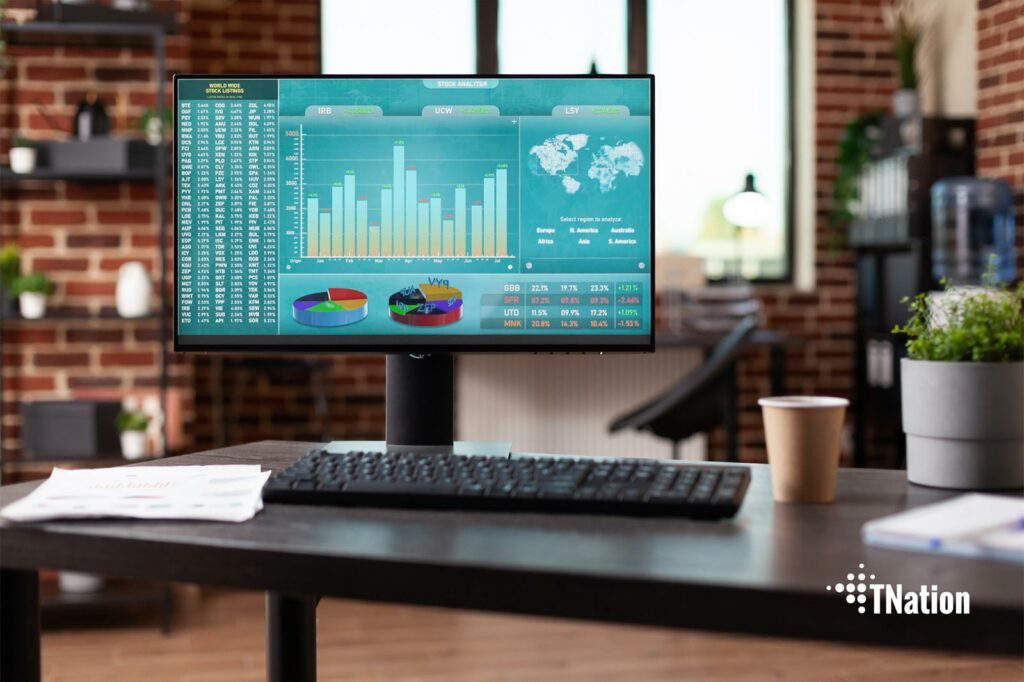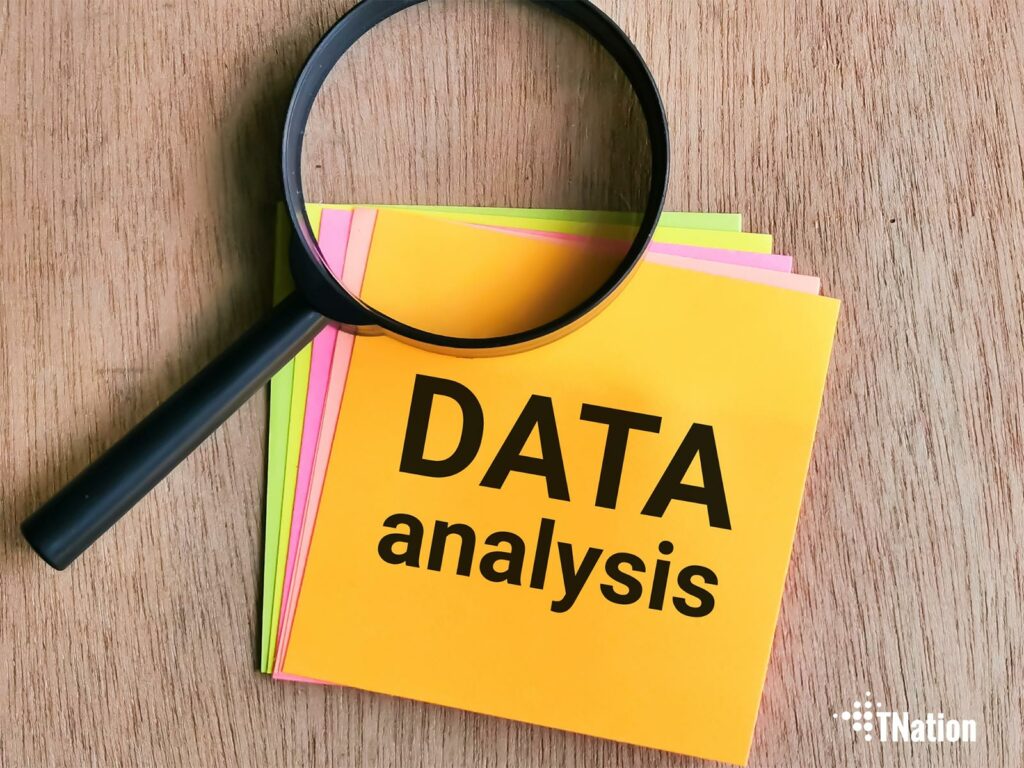Have you heard about the hype in the last few years about how many people have mentioned data? It’s been the title of every possible business-related blog post. In truth, data is knowledge, and it is increasingly sweeping the business world. Many firms have analyzed data to gain actionable insights and manage their businesses efficiently. Understanding data analytics in the industry enables you to make better decisions and reduce risks.
You might be wondering how data has any influence on your business. The reason is simple: almost every business needs to make better decisions to stay competitive. And if you’re not using data analytics or don’t understand how it works, you’re missing out on an opportunity for your company’s growth.
Look at it this way; you might have problems figuring out how to rank your website higher on Google. This is because you used every possible tool to research data. One way or another, you have already taken a step to improve your organization by using data.
Successful businesses aren’t just good offices, having a brilliant idea for software or service. Data analysis of what your customers really want and how they need it matters, so you can offer better products and services than your competitors. When you have the data at your fingertips, it’s easy to lead a successful business!
What is Data Analytics With Real-Life Examples?
Data analytics is the science of analyzing raw data. So, in other words, processes and algorithms work to make sense of the data and reshape it for human consumption. Otherwise, we would never make sense of it all.
This processed information gives us data analytics in business, which helps organizations investigate all of their data and uncover trends, develop insights that may be used to guide, investigate the connections and correlations between data sets, and automate decisions.
In simplest terms, it gives an insight into certain data groups. For instance, your research about Google rankings has led you to research your website’s analytics and decide what steps to take to attract more visitors.
It’s a broad term that encompasses several different sorts of data analysis. So, what are the types of data analytics?
Descriptive analytics
Descriptive analytics is the foundation for all other types of analysis. This type outlines the data that describes what happened over time. For example, are sales on your website up compared to the previous month? Descriptive analytics is where you start if you want to know what’s going on with your business. It’s a simple but incredibly useful way to get a feel for the nature of your data.
In the example of sales, let’s assume you have a particular growth on a specific day. With descriptive analytics, you can check the date when it started, when the demand has decreased, and whether or not the inventory covered it.
You can’t know what you don’t see, including all the possibilities that could be hidden in your data. So the next step is figuring out the options, but you won’t get there without knowing what has already happened.
Descriptive analytics helps you do just that by describing events in your business: when they started, when they ended, how long it lasted, and how intense they were. So, for example, you might find that a spike in demand for one of your products wasn’t due to a burst of interest in that product—it was because of a new promotion at a nearby store!
Diagnostic analytics
If you’re running a business, you know how important it is to take care of your processes, customers, and income. Diagnostic data analytics in the industry can help you find answers as well as uncover hidden correlations between different variables (or investigate our hunches).
Diagnostic analytics aims to identify the root causes of problems in your business processes. It can help you find answers and uncover causal relationships between customers and products.
For instance, you spike in visitors to a particular post on your website. Once you start reviewing data, you can conclude that it might be due to targeting a specific group of customers. It can be age, location, or gender.
That allows you to expand on such a product for a particular audience. It’s a well-known saying that if something works, you should use it.
Predictive analytics
This type of data analytics in business focuses on what is expected to occur soon. In the world of business, knowing why something happens is important, but it’s useless if you can’t do anything about it.
That’s where predictive analytics comes in. It allows us to predict what will happen in the future based on what has happened in the past. So it answers the question, “if things continue in this trend, what will happen?”
To “foresee future events,” we use causal relationships between variables that are known to be correlated with each other. For example, if you know that when one variable changes, another variable change at a specific rate or percentage, then you can predict that as soon as one variable changes, the other will change too (at a similar rate).
Let’s take an example of a mobile app. For instance, a software development company builds mobile apps for different industries and wants to predict the price of an app in the future. However, the cost of the app depends on various factors, such as the complexity of design and features, size, and the development team’s level.
That’s where the variables come in. For example, let’s say that developers’ salaries change over time. With linear progression from past data, there will surely be a particular increase in the costs of the mobile app.
Predictive analytics can be applied to any product on the market. So what does that mean for your business? First, you can develop strategies, accommodate the change, and prepare for the future.
Prescriptive analytics
This type of analytics advises a course of action. After finding out more about specific areas of your business you need to make a decision about what to do about it.
It’s like logical thinking; you take the situation at hand and develop it into multiple possible scenarios to resolve or improve the current situation. The simplest example is when planning on manufacturing a new product. This type of analysis can give you an insight into the possible return.
How Can Data Analytics Help Your Business?
Data analytics is a buzzword that’s been around for years, but it’s so much more than just a buzzword. Analyzing and interpreting data has become one of the most powerful tools businesses have at their disposal.
There are numerous ways data can be used to improve business decisions, from optimizing supply chains to predicting customer behavior. But in its essence, data analytics can help your business grow.
More precise marketing
Data analytics can help you understand which advertisements and promotions are working, so you can double down on what works. This gives marketers more information than ever before about how well their campaigns are performing—and allows them to focus their efforts on things that actually work without wasting money.
Better decision making
By considering various scenarios and evaluating them with data, you can make more accurate decisions about your business’s direction. Data analytics makes it easier to see which products are selling well and which aren’t. This information will help inform future decisions about what kind of products or services should be offered in order to appeal most closely to customers’ needs.
Enhanced efficiency
Analyzing data can help you set up your business processes to be more efficient. In addition, data analytics can help you determine which aspects of your business are underperforming so that you can double down on those areas while spending less time.
Finally, by looking at historical information about past sales activities or product launches across different markets over time (or even just within one particular market), companies have increased revenue dramatically by making small changes based on what they discover through their analysis efforts!
Improved customer service
Data analytics lets you get a 360-degree view of your customer’s experience to provide them with the best possible service. It is the key to making your customer experience more personalized and effective. As a result, you can better understand your customers’ needs, analyze feedback, identify problems, and improve your service.
Data analytics is a powerful tool for businesses that want to grow!
Businesses that use data analytics to understand their customers and make informed decisions are the ones that can best capitalize on the customer experience. They have a better understanding of what their customers want. As a result, they can improve processes, provide better customer service, and market more effectively.
Data analytics can help you to grow your business and make informed decisions. Your data is the most valuable asset you have. Data analytics is a powerful tool that can provide you with insights into your business to help you make better decisions.
It can also help you stay ahead of the competition, improve your business operations, and understand your business better. With the right software, it won’t take long before your company starts reaping the benefits!
If you automate your business, make a confident decision, and let our team help you improve your organization.



